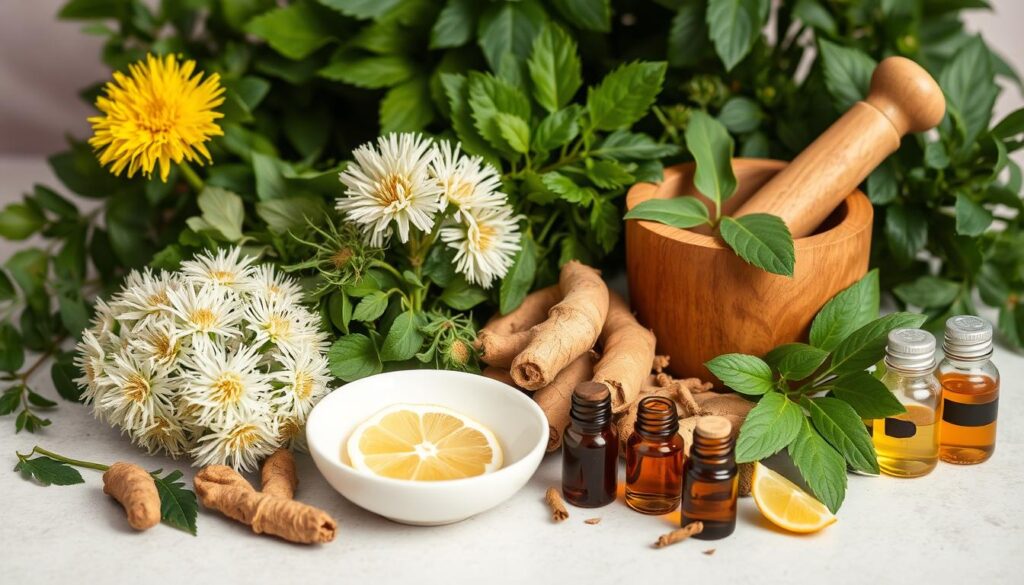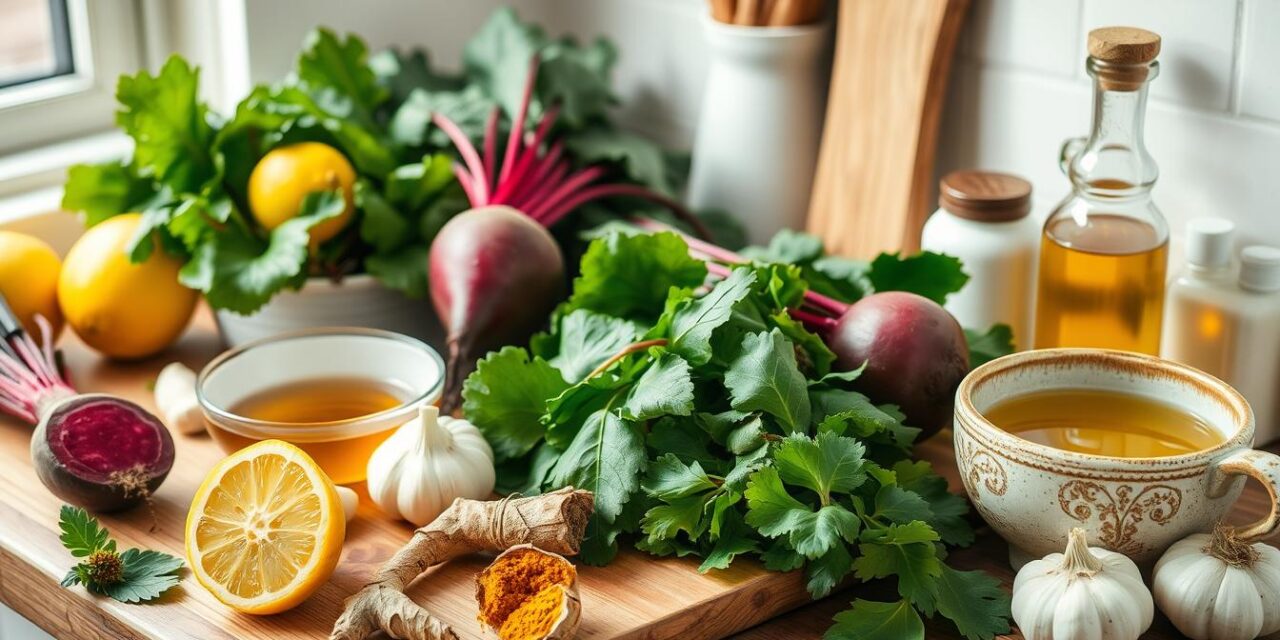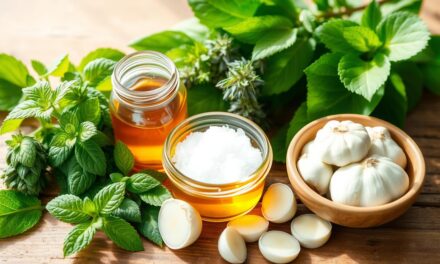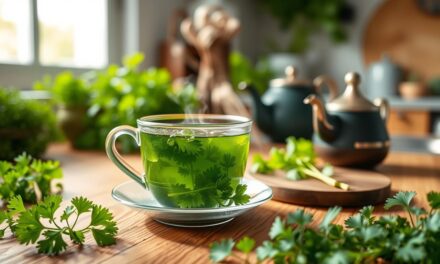Did you know up to 1 in 4 Australians may have non-alcoholic fatty liver disease? This is a worrying fact that shows how common this condition is. But, there’s good news: you can treat it with home remedies and natural treatments.
This guide will show you how to improve your liver health. You’ll learn about herbal teas and Mediterranean diets that can help. You’ll find out how to naturally fight fatty liver and improve your wellbeing.
Key Takeaways
- Up to 1 in 4 Australians may have non-alcoholic fatty liver disease, highlighting its growing prevalence
- This guide provides effective home remedies and natural treatments to address fatty liver disease
- Strategies include herbal tea remedies, traditional Asian medicine approaches, and Mediterranean-inspired treatments
- Discover evidence-based herbal solutions and safe supplementation guidelines for liver support
- Learn about beneficial lifestyle modifications and exercise guidelines for liver recovery
Understanding Fatty Liver Disease and Its Impact
Fatty liver disease is a serious issue that affects the liver’s function. There are two main types: non-alcoholic fatty liver disease (NAFLD) and alcoholic fatty liver disease (AFLD). Knowing the difference is key to keeping your liver healthy.
Types of Fatty Liver Disease
NAFLD is the most common, affecting up to 30% of adults in Australia. It’s not caused by too much alcohol but by obesity, diabetes, and bad diets. AFLD, however, is caused by drinking too much alcohol and can damage the liver more.
Common Symptoms and Warning Signs
- Fatigue and weakness
- Abdominal discomfort or pain
- Unexplained weight loss or gain
- Nausea and vomiting
- Yellowing of the skin and eyes (jaundice)
In the early stages, fatty liver disease often has no symptoms. Regular health checks are vital to catch it early.
Risk Factors to Consider
- Obesity and excess body weight
- Type 2 diabetes
- High cholesterol and triglyceride levels
- Sedentary lifestyle and lack of physical activity
- Certain medications or toxin exposure
- Genetic predisposition
Changing your lifestyle and getting medical help can prevent fatty liver disease.
Essential Dietary Changes for Liver Health
To fight fatty liver disease, making smart diet changes is key. A good fatty liver diet plan helps feed your liver the right foods. This supports its healing and function.
Adding liver-friendly foods to your meals is the first step. These foods are full of nutrients. They help lower liver fat and keep it working well.
- Choose lean proteins like chicken, turkey, fish, and legumes for amino acids.
- Include fruits and veggies high in antioxidants, like leafy greens and berries, to fight stress.
- Go for whole grains like quinoa and brown rice for complex carbs and fibre.
- Add healthy fats from avocado and nuts to boost liver function.
| Liver-Friendly Food | Nutritional Benefits |
|---|---|
| Fatty fish (salmon, mackerel, sardines) | Rich in omega-3 fatty acids, which help reduce inflammation and support liver health. |
| Garlic | Contains allicin, a compound with potent antioxidant and anti-inflammatory properties that can protect the liver. |
| Turmeric | The active compound curcumin in turmeric has been shown to possess liver-protecting and regenerative effects. |
| Green tea | Packed with catechins, which can help reduce fat accumulation and improve liver function. |
By incorporating these liver-friendly foods into your dietary changes for fatty liver, you can make a diet plan. This plan helps your liver stay healthy and recover.

Home Remedy for Fatty Liver: Proven Natural Solutions
Take back control of your liver’s health with these natural solutions. Learn how herbal teas, traditional Asian medicine, and Mediterranean diets can help. They support your liver and fight fatty liver disease.
Herbal Tea Remedies
Drinking the right herbal teas can change your liver health. Add these powerful teas to your daily routine:
- Milk thistle tea: It detoxifies and regenerates liver cells, protecting against damage.
- Dandelion root tea: It boosts bile production, helping break down liver fats.
- Green tea: Full of antioxidants, it improves liver function and lowers fatty liver risk.
Traditional Asian Medicine Approaches
Traditional Asian medicine offers ancient remedies for fatty liver. Try these treatments:
- Ginger and turmeric: They reduce liver inflammation and support its health.
- Herbal liver tonics: Bupleurum and Astragalus detoxify and regenerate the liver.
- Acupuncture: It balances liver energy and boosts overall health.
Mediterranean-Inspired Treatments
The Mediterranean diet is great for the liver. It inspires these home remedies:
| Treatment | Benefits |
|---|---|
| Extra virgin olive oil | It’s full of healthy fats and antioxidants, reducing inflammation and protecting the liver. |
| Lemon and apple cider vinegar | They help break down and remove liver fats, supporting its function. |
| Garlic and onions | They contain sulfur compounds that detoxify and improve liver health. |
Use these natural remedies to revitalize your liver. Remember, being consistent and patient is crucial when treating fatty liver disease at home.

Beneficial Lifestyle Modifications for Liver Recovery
Changing your lifestyle can help a lot in fighting fatty liver disease. Making smart choices can help your liver get better and recover naturally.
Managing stress is key. Too much stress can harm your liver. Try activities like meditation, yoga, or deep breathing to help. These can really help your liver.
Getting enough sleep is also important. Aim for 7-9 hours each night. Sleep helps your liver fix itself and get rid of toxins. Make your sleep area calm and keep a regular sleep schedule.
- Regular exercise is good for your liver and helps with weight control.
- Stay away from harmful chemicals and pollutants to ease your liver’s work.
- Try traditional healing methods like Ayurveda or Traditional Chinese Medicine for a whole-body approach to liver health.
By making these lifestyle changes for liver health, you’re taking a big step towards fixing your fatty liver. Your liver is strong and can heal with the right care.
| Lifestyle Factor | Benefit for Liver Health |
|---|---|
| Stress Management | Reduces inflammation and supports liver function |
| Quality Sleep | Promotes liver regeneration and detoxification |
| Regular Exercise | Enhances liver function and supports weight management |
| Reduced Toxin Exposure | Minimises the burden on the liver |
| Holistic Therapies | Offer a comprehensive approach to liver health |
“Your liver is a remarkable organ, capable of regeneration and resilience. By embracing a holistic approach to your lifestyle, you can empower your liver to thrive and support its natural healing process.”
Powerful Herbs and Supplements for Liver Support
Managing fatty liver disease can be helped by using herbal solutions and dietary supplements. These natural remedies can support liver health and function. They offer a holistic approach to your well-being.
Evidence-Based Herbal Solutions
Several herbs have shown promise in promoting liver detoxification and health. Some of the top contenders include:
- Milk thistle (Silybum marianum) – Known for its antioxidant and anti-inflammatory properties, milk thistle is one of the most well-studied herbs for herbal remedies for liver detox.
- Turmeric (Curcuma longa) – The active compound curcumin in turmeric has been shown to have protective effects on the liver and can aid in reducing fatty liver buildup.
- Dandelion root (Taraxacum officinale) – This herb is a natural diuretic and can help support liver function by promoting the elimination of toxins.
Safe Supplementation Guidelines
When using fatty liver dietary supplements, it’s important to follow safe guidelines. Always consult with a healthcare professional to find the right dosage and timing for you. Proper supplementation can help your liver recover, but be careful not to take too much.
Timing and Dosage Recommendations
The timing and dosage of supplements for fatty liver support can vary. Generally, take liver-supportive supplements with meals to improve absorption and avoid digestive issues. Always follow the instructions from the manufacturer or your healthcare provider for safe and effective use.

Exercise and Physical Activity Guidelines
Regular exercise is key for managing fatty liver disease. It helps with weight management and improves liver health. Here are some guidelines to get you started.
Embracing Moderate-Intensity Exercises
Try for 30-60 minutes of moderate activities like brisk walking, swimming, or cycling daily. These activities boost blood flow, reduce inflammation, and help break down liver fat.
Strength Training for Liver Health
Doing two to three strength training sessions a week is beneficial. Focus on exercises for major muscle groups. This increases lean muscle and boosts metabolism, aiding in weight control.
Tailoring Exercise to Your Fitness Level
If you’re new or have mobility issues, start with low-impact activities like yoga, Pilates, or gentle stretching. Increase intensity and duration as you get fitter. Always listen to your body and avoid overdoing it.
| Activity | Duration | Frequency |
|---|---|---|
| Brisk Walking | 30-60 minutes | Most days of the week |
| Strength Training | 30-45 minutes | 2-3 times per week |
| Yoga or Pilates | 30-60 minutes | 2-3 times per week |
Consistency is crucial. Gradually add these exercises for fatty liver and physical activity for liver health to your routine. You’ll be on your way to better weight management for fatty liver and improved liver function.

“Regular exercise can help reduce fat buildup in the liver, improve insulin sensitivity, and promote weight loss – all of which are crucial for managing fatty liver disease.”
Foods to Avoid with Fatty Liver Disease
It’s important to watch what you eat when you have fatty liver disease. Some foods can make it worse. By avoiding these foods, you can help your liver get better.
Hidden Sources of Liver-Harming Ingredients
Many foods have ingredients that are bad for the liver. Here are some examples:
- Added sugars, found in many processed snacks and sweet drinks
- Trans fats, in fried foods and some baked goods
- Too much alcohol, which harms liver cells
- High-fructose corn syrup, linked to fatty liver
Healthy Alternatives for Fatty Liver
To help your liver, eat these healthy foods:
- Unprocessed fruits and veggies, full of good stuff for your liver
- Lean proteins like chicken, fish, and beans, for nutrients without too much fat
- Healthy fats from avocados, nuts, and olive oil, for balanced nutrition
- Whole grains, for complex carbs and fibre
Choosing the right foods can help manage fatty liver disease. It’s a big step towards better health.
| Foods to Avoid | Healthy Alternatives |
|---|---|
| Added sugars, processed snacks, baked goods, sweetened beverages | Whole fruits, vegetables, whole grains |
| Trans fats, fried foods, margarine | Healthy fats (avocado, nuts, olive oil) |
| Excessive alcohol | Water, herbal tea |
| High-fructose corn syrup | Natural sweeteners (honey, maple syrup) |
“Nourishing your liver with the right foods is a crucial step in managing fatty liver disease and promoting overall health.”
Monitoring Your Progress and Recovery Signs
Starting your journey to manage fatty liver disease is exciting. It’s key to track your progress and spot signs of getting better. By watching your liver function, you learn how well your treatment is working. This helps you make smart choices about your care.
Key Indicators of Improvement
Regular blood tests are a great way to see how you’re doing. They check your liver enzymes, like ALT and AST. If these levels go down, it means your liver is healing and working better.
You might also notice you’re feeling less tired and less uncomfortable in your belly. These are good signs that you’re getting better.
When to Consult Healthcare Professionals
It’s important to keep an eye on your own progress. But, don’t forget to see your healthcare team regularly. They can do detailed checks, order tests, and watch your condition closely.
If you see any big changes, like your liver enzymes going up or new symptoms, see your doctor right away. They can figure out what’s happening and change your treatment to help your liver get better.





